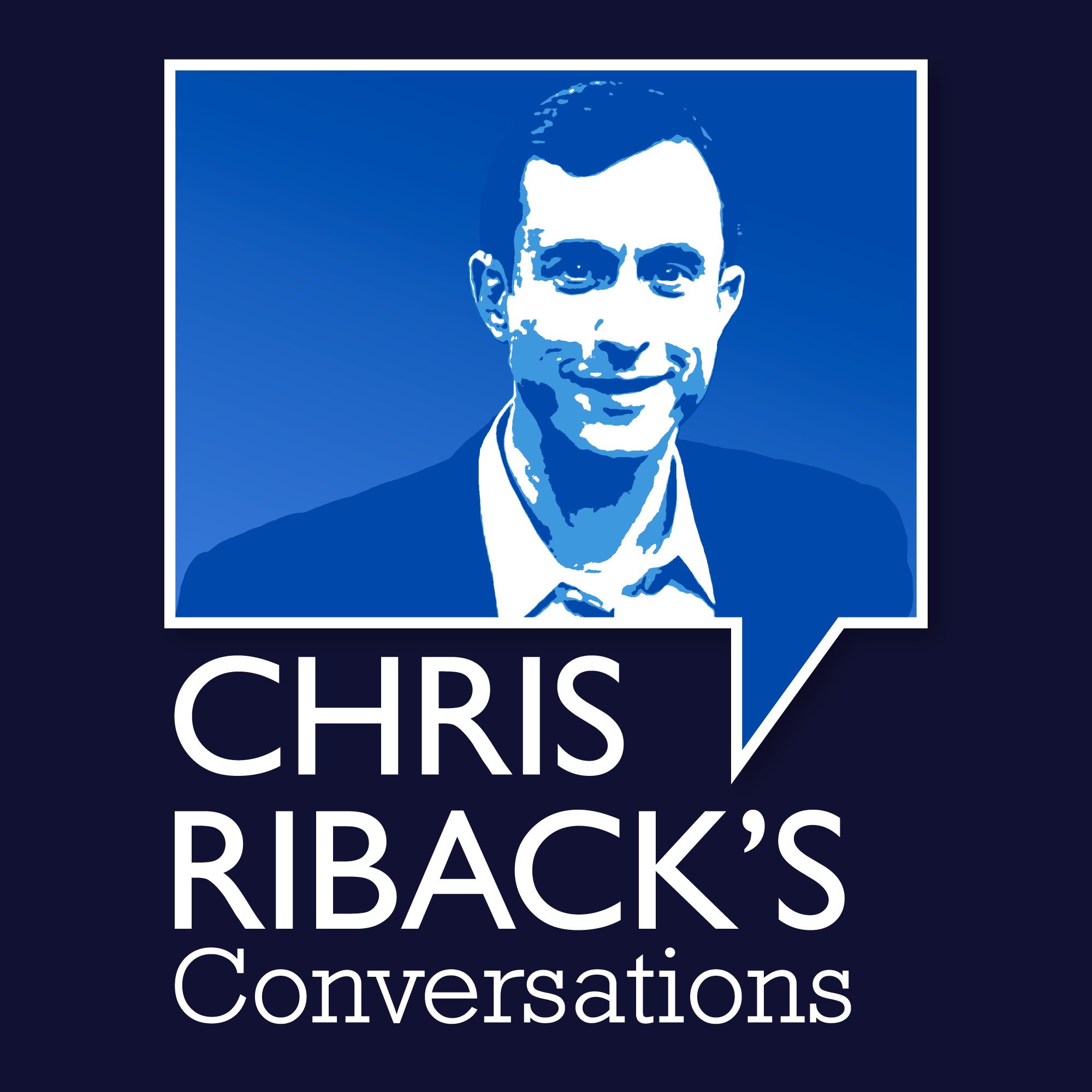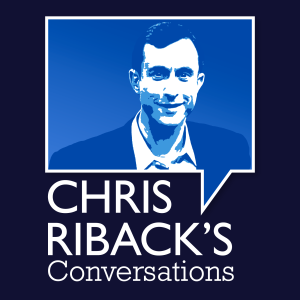
293.5K
Downloads
176
Episodes
Engaging smart thinkers on issues of the day. Subscribe for newsletter & show notes at chrisriback.com (podcast formerly "Political Wire Conversations")
Engaging smart thinkers on issues of the day. Subscribe for newsletter & show notes at chrisriback.com (podcast formerly "Political Wire Conversations")
Episodes

Monday Dec 16, 2013
John Sides, political scientist and author of "The Gamble"
Monday Dec 16, 2013
Monday Dec 16, 2013
We all know the high points of elections – the zingers, the gotchas and the flat out mistakes. They’re often called “game changers,” and our recent campaigns have seen plenty of them. From Mitt Romney’s 47 percent speech to President Obama’s debate debacle to so-many others that are now long-forgotten, the 2012 Presidential campaign was defined by these near-daily seminal events.Or was it? What if the headlines that drive our minute-by-minute news cycles – the narratives that many of us believe define our politics – don’t define much reality at all? What if the data reveal something different than we commonly believe?Among the many trends of popular political coverage today, perhaps the most telling is growing mix of scientific data analysis and narrative storytelling. And more than ever, this mix is revealing new truths in our political landscape.One leader in this trend: John Sides, Associate Professor of Political Science at George Washington University. He is co-founder of The Monkey Cage, the popular political blog now hosted by the Washington Post and co-author of one of the highly-influential book, “The Gamble: Choice and Chance in the 2012 Presidential Election.”

Thursday Dec 12, 2013
Stuart Stevens, chief strategist for Mitt Romney's 2012 presidential campaign
Thursday Dec 12, 2013
Thursday Dec 12, 2013
It was just over a year ago that we held our national poll to decide who would lead our country for the next four years. We know the results: 51-47 percent popular vote – nearly 60-40 by electoral votes – we stayed with President Obama over Former MA Gov. Mitt Romney.Any campaign, of course, starts with the candidate. But right behind the headliner – a vast network, a billion-dollar start-up that must quickly get into gear and then keep it going at top speed for some two years.For Romney – as with any campaign – that network faced its share of ups and downs. What really happened behind the scenes? And looking forward, what lessons should Republicans apply to 2014 midterm elections and beyond?One person with answers: Stuart Stevens, lead political strategist of the Romney campaign. Not only does Stevens remain a political strategist and media consultant with his firm – Strategic Partners & Media – he’s also an author, writer, extreme sports competitor and, soon, releasing a new book about his year of spending Saturdays watching Ole Miss football games with his 95-year-old father.

Tuesday Dec 10, 2013
Doris Kearns Goodwin, author of "The Bully Pulpit"
Tuesday Dec 10, 2013
Tuesday Dec 10, 2013
A massive and growing gap between rich and poor. A middle class squeeze. Technological shifts driving changes in how people live their lives everyday. Big corporations getting bigger, and the influence – and confluence – of money and politics growing stronger.At the same time, a progressive US president takes office, willing to take on big business and big money – promising a new vision that will rewrite the way the government and the people interact.If this sounds familiar, then wait, because you haven’t heard the whole story. For this story, the time was the beginning of the 20th Century. The President was Teddy Roosevelt. And the Industrial Revolution – with its monopolies and unsafe working conditions and vast collections of wealth – met a President willing to take it on.How did he do it? How did he try to extend his success with a hand-picked successor William Howard Taft? And what, if any lessons, can we take today from events that occurred then?Doris Kearns Goodwin almost literally needs no introduction. She is the Presidential Historian and Pulitzer Prize winning author. Her new book is: “The Bully Pulpit: Theodore Roosevelt, William Howard Taft, and the Golden Age of Journalism.”

Thursday Dec 05, 2013
Mark Halperin, co-author of "Double Down" and "Game Change"
Thursday Dec 05, 2013
Thursday Dec 05, 2013
The U.S. presidential campaign. It’s the horse race. The often-ridiculous, never-ending, up and down, bad food and bad manners parade of candidates who travel the country for years trying to get that golden 50.1 percent ticket to the White House.At the same, it’s our democratic process, the national stage where ideas get raised and debated, where our 240-year experiment with democracy plays out in slow motion.The 2012 campaign – the Obama vs. Romney battle – was no different. Plenty of ideas; plenty of intrigue; plenty of silliness. And today, no one does a more exacting job of retelling what happened in the last campaign – with an eye on what might happen in the next one – than Mark Haperin, Editor-at-large and senior political analyst for TIME and co-author of “Double Down: Game Change 2012.”

Monday Dec 02, 2013
Larry Sabato, University of Virginia's Center for Politics
Monday Dec 02, 2013
Monday Dec 02, 2013
For anyone trying to make sense now of the 2014 or even 2016 election cycles, good luck. For Republicans, battles around the party’s direction – battles that surely will play out even in upcoming primaries. For Democrats, real questions of how closely candidates will stand behind the President and the health care reform plan.And then there’s the gridlock – from government shutdown to Obamacare rollout to nuclear option, many Americans wonder what it will take to make government work again.As the midterm election season approaches, you almost need a crystal ball to get a clear view of what’s most likely to occur. Luckily, we have one.Larry Sabato is University of Virginia Professor of Politics and director of their Center for Politics. He is also Editor-in-Chief of Sabato’s Crystal Ball, the must-read, detailed analysis for elections across the country.

Wednesday Nov 27, 2013
Joe Scarborough, host of "Morning Joe" and author of "The Right Path"
Wednesday Nov 27, 2013
Wednesday Nov 27, 2013
Almost no Republican needs reminding: The party has lost 5 of the last 6 popular Presidential votes. And now, with one Government Shutdown behind them, new budget battles coming, and midterm elections on their minds, Republicans face a clear challenge: Which direction will they go? Hard to the right, as the Tea Party wing seems to desire? Or more to the middle, as the so-called Establishment might emphasize?With both sides claiming to represent true conservatism – claiming to be the real heirs to Ronald Reagan – who should voters believe? And with so many competing claims, does any Republican have a clear way forward?One person who says he does: Joe Scarborough. Host of MSNBC’s Morning Joe and, of course, former US Representative from Florida. He’s author of the new book: “The Right Path: From Ike to Reagan, How Republicans Once Mastered Politics – and Can Again.”

Monday Nov 25, 2013
Michael Beschloss on presidential second terms
Monday Nov 25, 2013
Monday Nov 25, 2013
What is it about Presidential Second Terms? Just 11 months into Obama Term 2, he seems to have fallen into the same trap as many of his predecessors. Each of the last four two-term Presidents – Bush, Clinton, Reagan and Nixon – had extremely difficult second terms: Each with different circumstances and outcomes. And they weren’t the first. Why are second terms so difficult? Do they have to be? And are there any lessons President Obama can take from history to make the rest of his time just a bit easier? Earlier I spoke with Michael Beschloss, Presidential Historian, author, Contributor to PBS NewsHour & NBC News about the 50th Anniversary of the Kennedy Assassination. It was a terrific conversation. But I also wanted to ask him to help put current times into perspective – to help us understand what makes second terms so challenging.

Friday Nov 22, 2013
Michael Beschloss, presidential historian
Friday Nov 22, 2013
Friday Nov 22, 2013
It was a Golden Age of hope and danger and opportunity. A young President; a glamorous wife; a country with internal conflict and external threat, but also inspiration. And suddenly 50 years ago, with a shot, it ended. Any person alive at the time recalls exactly where he or she was when John F. Kennedy was assassinated. But with 50 years of hindsight, do we have a better sense now of where we were then as a country? What is most relevant today about what JFK represented and accomplished? And, how would he fare politically today? Few have spent and continue to spend more time considering these questions than Michael Beschloss, Presidential Historian, author, Contributor to PBS NewsHour & NBC News

Thursday Nov 21, 2013
Jeff Greenfield on "If Kennedy Lived"
Thursday Nov 21, 2013
Thursday Nov 21, 2013
Some 50 years ago, the gunshot that changed American politics – indeed, changed America – was fired. Dallas, November 22, 1963. President John F. Kennedy – urged by Vice President Lyndon Johnson – made a long-planned trip to Texas. With the ’64 election just around the corner – and Texas support in question – the trip mattered. Kennedy went to Dallas. We know what happened next. But what if – by twist of fate – that day played out differently? What if the rain hadn’t stopped and a plastic bubble top would have covered the President’s car? What if he were not fatally injured? What if he lived? If you wonder about ANY of those questions, you’re not the only one: Jeff Greenfield, veteran and thoughtful analyst of politics, culture and media is also author of the fascinating new book, “If Kennedy Lived: The First and Second Terms of President John F. Kennedy: An Alternate History.”

Monday Nov 18, 2013
Jeff Greenfield, political analyst and historian
Monday Nov 18, 2013
Monday Nov 18, 2013
One week they’re up. Next they’re down. One week we’re debating Republican control of the House; the next whether Democrats could potentially lose the Senate. One week it’s the Republican civil war, all wondering whether the GOP will see unity between the so-called Establishment and the Tea Party; the next week, Democratic unity is questioned, along with whether Democrats will stand with the President and Obamacare.The back and forth and ups and downs make for terrific political theater and much speculation. But beyond hopeless prediction – I mean, could anyone have predicted the last two months?– we seek understanding and context and clarity. And for that, I turned to Jeff Greenfield.With the 50th Anniversary of John F. Kennedy’s death upon us, I spoke with Jeff, veteran and thoughtful analyst of politics, culture and media and also author of the fascinating new book, “If Kennedy Lived: The First and Second Terms of President John F. Kennedy: An Alternate History.” The Kennedy part of the conversation will air later; for now, I wanted to know his views on news of the day.
